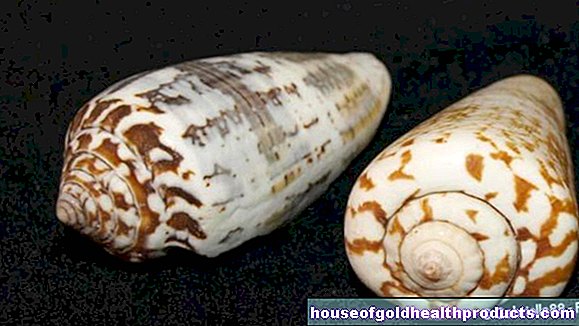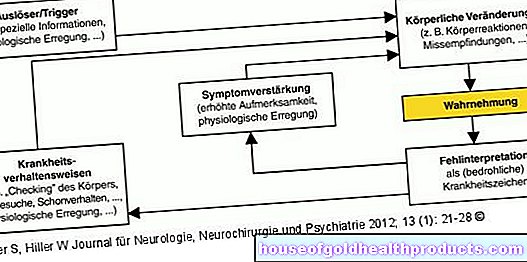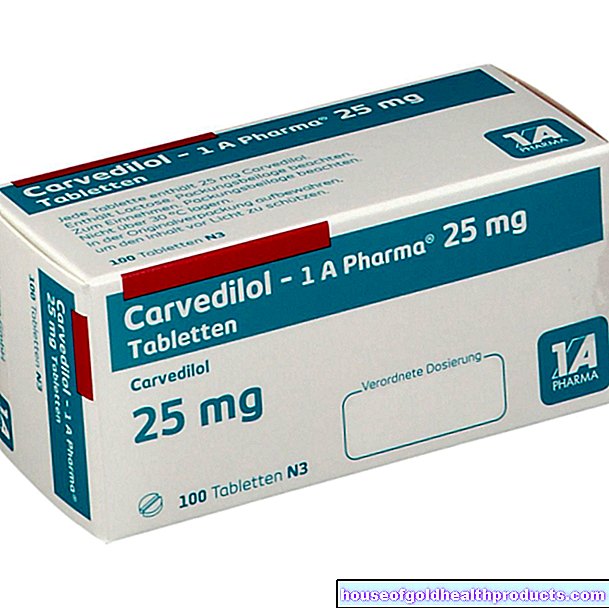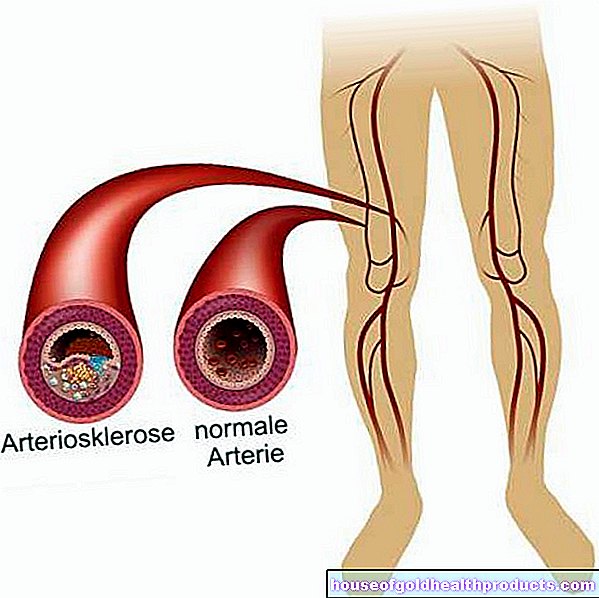Too much salt blocks the brain
Christiane Fux studied journalism and psychology in Hamburg. The experienced medical editor has been writing magazine articles, news and factual texts on all conceivable health topics since 2001. In addition to her work for, Christiane Fux is also active in prose. Her first crime novel was published in 2012, and she also writes, designs and publishes her own crime plays.
More posts by Christiane Fux All content is checked by medical journalists.A diet that is very salty can impair brain functions. The brain is poorly supplied with blood. This reduces memory performance - up to and including dementia. At least that's true for mice.
Six grams of salt - an adult should not consume more per day if possible. That is what the health guards of the World Health Organization (WHO) recommend. The main reason for the advice is that salt can increase blood pressure. This increases the risk of serious cardiovascular diseases.
Salt diet for mice
Now researchers working with Giuseppe Faraco from Cornell University in New York have discovered another negative consequence of high salt consumption: salt worsens memory.
For their experiment, the scientists put mice on a high-salty diet: four and eight percent of the diet consisted of salt.The researchers write that this corresponds to the diet of people who eat extremely salty foods.
Lost in the maze
After eight weeks, the animals showed significant memory impairments: they eyed objects that they had already got to know just as intensely the repeated time as the first time. Conspecifics who had not been prescribed a salt cure were then significantly less interested. And even when running through a labyrinth that they had already explored, the salt mice fared considerably worse.
Badly perfused brain
Magnetic resonance tomography (MRI) images showed why the animals got along so badly: The cerebral cortex and the hippocampus, which is crucial for storing memories, had a poorer blood supply - by 28 and 25 percent respectively.
The researchers' first hypothesis was that the salt could have caused inflammation in the blood vessels of the brain, which impaired memory performance. This suspicion was not confirmed. Also, to the surprise of the researchers, the animals' blood pressure did not rise during the salt cure.
Aggressive immune cells
A previously unknown connection between digestion and the brain turned out to be the cause of the phenomenon: the number of so-called TH17 immune cells increased under the salty diet. These can trigger inflammatory processes.
Among other things, they release interleukin-17 for this purpose. The messenger substance also reaches the brain via the blood. There it hinders the supply of the vessels with nitric oxide, which is necessary for the widening of the blood vessels. As a result, the brain is not supplied with sufficient blood.
Laboratory tests with human cell lines suggest that this could also apply to human salt consumers. Because interleukin-17 is also there.
This condition is reversible: some of the animals received normal food again. After a few weeks, their memory returned to normal. In the case of mice that continued to receive too much salt, the situation came to a head: They even had problems building a nest. A clear sign of dementia for the rodents.
However, people usually rarely consume such high amounts of salt. "In Asian countries, however, the proportion of salt is already close to such values in some cases," says Faraco when asked by In a next step, the scientists want to investigate the effects of significantly lower salt quantities of one to two percent. "In particular over a longer period of time, impairments could occur", says Faraco.
Active ingredient improves brain performance
With an active ingredient called ROCK Inhibitor Y27632, the researcher and his team succeeded in buffering the consequences of extreme salt consumption: the animals' brain performance improved again. It prevents too little nitric oxide from being produced in the vessels. “This mechanism offers an interesting approach for future research into the causes of cognitive impairment,” says Faraco.
Patients with other diseases related to interleukin-17 could also benefit from it. These include autoimmune diseases such as multiple sclerosis, rheumatoid arthritis, and inflammatory bowel disease.
Tags: menshealth skin sports fitness














.jpg)















